CONNECT NEW YORK CITY
Sonali Pathirana
Inspiring the next generation of journalists to present the world as it really is
Imagine a world where every journalist looks, sounds and thinks the same. How limiting would that be when it comes to understanding any major problem?
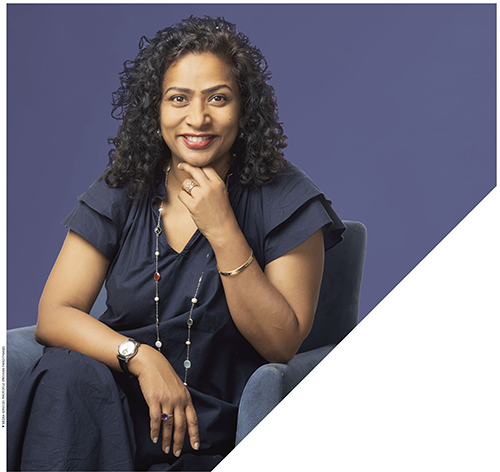
A dynamic leader known for spearheading diversity while mentoring future talent, Sonali Pathirana combines business acumen with empathetic leadership – particularly in the realms of change management, automation and journalism.
Counting two decades at Bloomberg News, Pathirana is presently its Managing Editor overseeing the agency’s internship programme, and hiring entry level talent for the Americas and UK.
Her initiatives have championed diversity, equity and inclusion (DEI) to ensure that young talent has access to and is inspired by role models from similar backgrounds.
Despite being away from her homeland for decades, Pathirana’s Sri Lankan heritage remains at the core of her identity, influencing a commitment to excellence and community engagement.
In this exclusive interview with LMD International, Pathirana sheds light on the importance of nurturing journalists with diverse viewpoints to build confidence in the media and the emerging challenges of AI in journalism – and she shares her thoughts on the media here in Sri Lanka.
– Compiled by Nicola Jayasundera
Visible diversity is essential when inspiring talent – ‘you cannot be what you cannot see.’
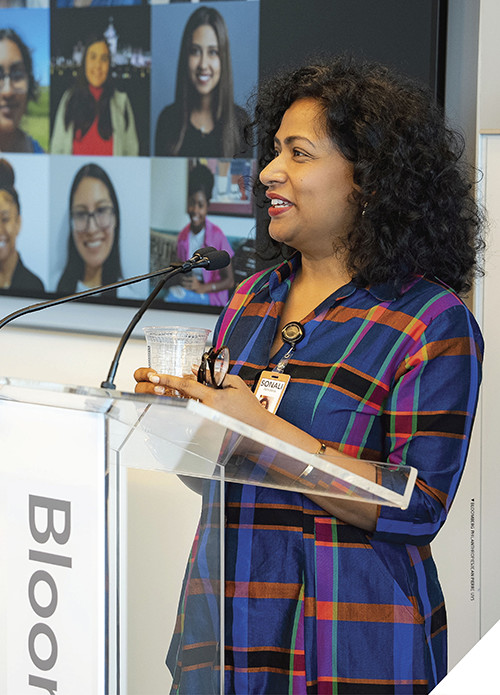
Q: You’ve been able to extend a key initiative at Bloomberg News called the Bloomberg Journalism Diversity Program. What is this about – and what inspired you to get involved in it?
A: Imagine a world where every journalist looks, sounds and thinks the same. How limiting would that be when it comes to understanding any major problem? And worse, how boring would it be to us, the news consumers?
That’s why diversity in journalism isn’t simply a buzzword – it’s essential. Incorporating viewpoints and skills from across the population is essential when covering news.
The founding Editor-in-Chief of Bloomberg News Matt Winkler says that “if everyone asking the questions looks alike and sounds alike, there is little chance of explaining the world as it really is.”
And that’s why he founded this programme in 2017, which is sponsored by Bloomberg Philanthropies.
When I took on my current role of Managing Editor overseeing internships, outreach to universities, and hiring all entry level talent across the Americas and UK for Bloomberg News, I doubled the size of the programme while changing the curriculum and importantly, the instructors who are all reporters from the newsroom.
Visible diversity is essential when inspiring talent – ‘you cannot be what you cannot see.’ So whenever I design an engagement with students, I ensure that the instructors reflect the population they’re teaching. And I always involve young as well as more experienced people.
Students connect much more when hearing from recent graduates who have been in their shoes while being inspired by role models who look like them or have similar backgrounds.
The Bloomberg Journalism Diversity Program has trained nearly 200 journalists and we’re having an impact across the industry.
At the start of the New York programme in May for example, only 17 percent of the 24 students considered themselves future business journalists, saying they felt they’d rather cover climate change or politics, or fearing that it would involve ‘lots of maths.’
What they didn’t know is that when you cover business and ‘follow the money’ as we train reporters to do, you can cover all this and more!
By the end of the week of training where students learnt to write concise TV scripts or short stories about the economy, during which we taught them about ethics in journalism and spotting fake news, nearly all of them ended up saying they could see themselves as future business journalists!
Q: What did you do before you took on this role?
A: I still remember my first day at Bloomberg News, fresh out of the University of Cambridge with zero journalism classes under my belt. My interview was at 5:30 a.m. and I didn’t know what hit me.
The learning curve was steep but the sheer adrenaline rush made those 3:30 a.m. wake up calls worth it. What I lacked in sleep, I made up for in stress; but I also learned a lot.
On the Breaking News desk, you’re a ‘generalist,’ constantly moving between topics as diverse as corporate earnings to a drug trial, a central bank policy statement or an earthquake.
Absolutely any news that moves the price of money is of interest to financial clients and you’re constantly looking to beat the competition by milliseconds.
When I was running all breaking news operations, I got involved with building the initial algorithmic trading and enterprise sales business, working with quant traders to create machine based event driven trading opportunities.
I went on to run Breaking News operations across two-thirds of the world, first based in New York City and then in London.
Thereafter, I moved on to working with the News Automation team until my present role was advertised. I felt that I could have an impact on the business by finding, inspiring, developing and supporting the next generation of talented journalists.
ABOUT SONALI
PLACE OF BIRTH
Colombo
FAMILY
Dad – Chandra Pathirana (passed away in 2012)
Mum – Manil Pathirana (quite famous for her sari shop Boutique Ranmal on Galle Road)
Siblings – Ranmali (married to Kumar Mirchandani) and Ranil (married to Debika)
Proud aunt of Randev, Raaya and Raneka
Husband – Frank Hoffmann (works at the Princeton Plasma Physics Laboratory)
SCHOOLING
Holy Family Convent (where she was the first Buddhist to become head girl, leading a cohort of 40 prefects; she was also Familian of the Year)
HIGHER EDUCATION
Reading for a doctorate in instructional design in education
Master’s in development studies (economics) – University of Cambridge
Undergraduate degree in sociology
AWARDS
Asian American Business Development Center’s Outstanding 50 Asian Americans in Business
Commonwealth Scholar
COUNTRY OF RESIDENCE
US
CITIES OF RESIDENCE
New York City (New York)
Princeton (New Jersey – where her husband is based because of his work)
Even as a non-American, I’d like to not be as blindsided as many of us were in 2016 by both Brexit and the presidential election result here in America
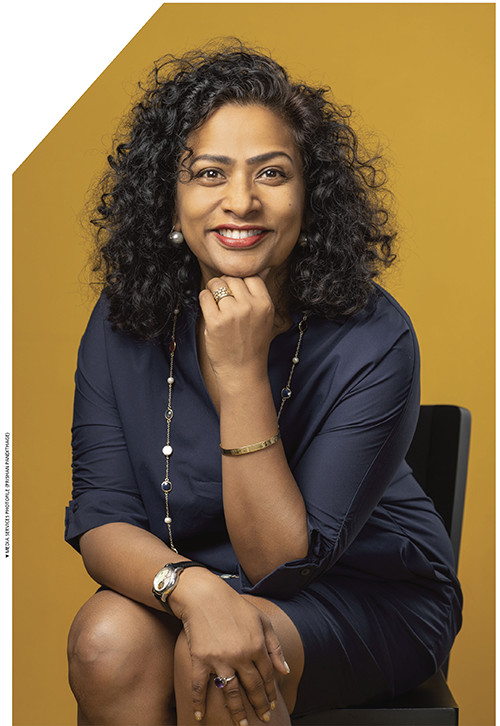
Q: Could you describe your leadership philosophy and how it has evolved during your career?
A: During a particularly tough restructuring that I had to implement in my previous role, I realised that empathy could be balanced with business imperatives. Listening to my team’s concerns didn’t merely ease the transition, it led to better outcomes.
I’m always about the bottom line of the business. In my present role, everyone I manage is either an intern or a recent graduate in his or her first job. Delivering on business imperatives is key but some flexing is needed – particularly putting myself in the shoes of someone who has a very different background and worldview, and is several years younger!
Q: What are the main challenges you’ve faced in change management – and how did you overcome them?
A: Working in the US, I’ve found that implementing change – even disruptive change – can be handled relatively quickly. When I rolled out key automation within Breaking News, at scale and ahead of schedule, it was like ripping off a band aid. But the results spoke for themselves – i.e. increased efficiency and a more agile team.
It was entirely different when I worked in Europe, the Middle East and Africa, where I had to consult a lot more and offer a more nuanced set of changes but ultimately got to the same result.
Change is hard everywhere. I’m on the board of my building in New York City and implementing changes can be tough because unit owners can have very different budgets or willingness to adapt.
At Princeton University’s Davis International Center where I was on the committee that supported foreign students, much of the change was about responding to the constantly evolving needs of students.
I recently joined the board of Center for Modern Aging Princeton because we’re all caregivers in some way, and I wanted to learn more as well as contribute to the needs of the community. Ensuring that everyone on the board is heard and diverse viewpoints are considered is challenging, even while making sure there’s an efficient result.
One of my favourite lines is from when a SpaceX ship crashes after launch. On those sad occasions, they’ll say it’s an ‘RUD,’ which is a ‘rapid unscheduled disassembly,’ and the team pivots to the data they’ve gathered and moves on to learning from the problem.
Q: Could you share a specific success story where your mentorship has made a significant impact on someone’s career?
A: I’m very proud of all the people I’ve hired or mentored – they run into the hundreds – but when trying to pick one, I know the upcoming US presidential election is on many people’s minds.
Many of my recent hires are now White House or political reporters. They – along with all their peers whom I’ve recruited, from data journalists to reporters covering markets like coffee or oil, or working with breaking news – are contributing to the diverse valuable viewpoints that are essential to the news that informs viewers of our decisions.
Even as a non-American, I’d like to not be as blindsided as many of us were in 2016 by both Brexit and the presidential election result here in America. Having robust and diverse coverage of key issues could help bridge that gap, and inspire confidence in the media.
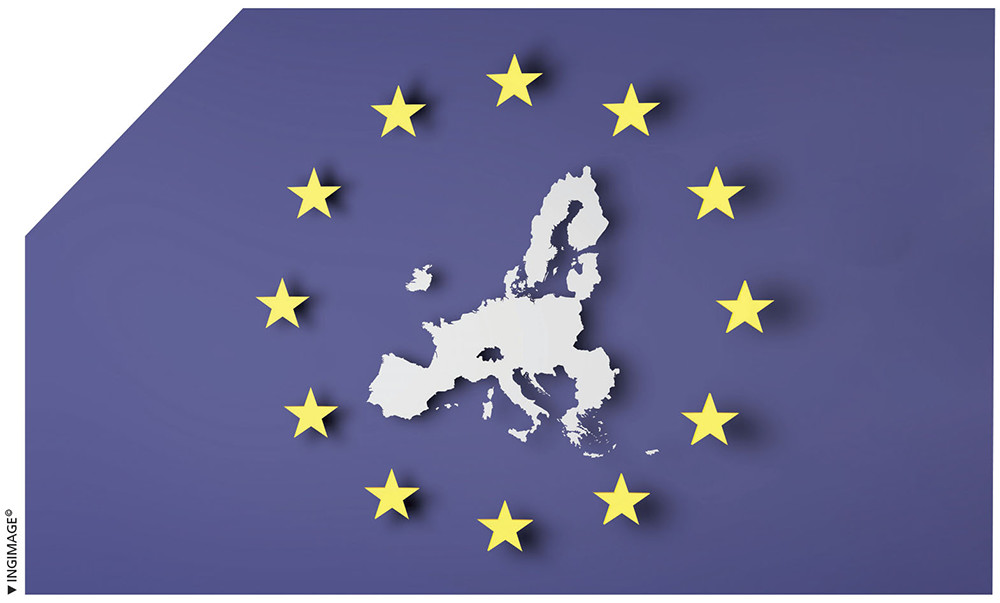
LIFE
HOBBIES
Reading
Theatre
Walking
Water colouring
ALWAYS WANTED TO BE
A better swimmer – “I don’t actually like putting my face in water so this impacts my ability to be the next Nyad!”
ASPIRATIONS
To care less about what others think
LOVES
Family
Friends
Theatre
Koluu’s triple chocolate mousse
PET PEEVES
Lazy work or people who are lazy
SECRET INDULGENCES
Dark chocolate
Agatha Christie’s Poirot with David Suchet or similar
MOTTO IN LIFE
Get it done
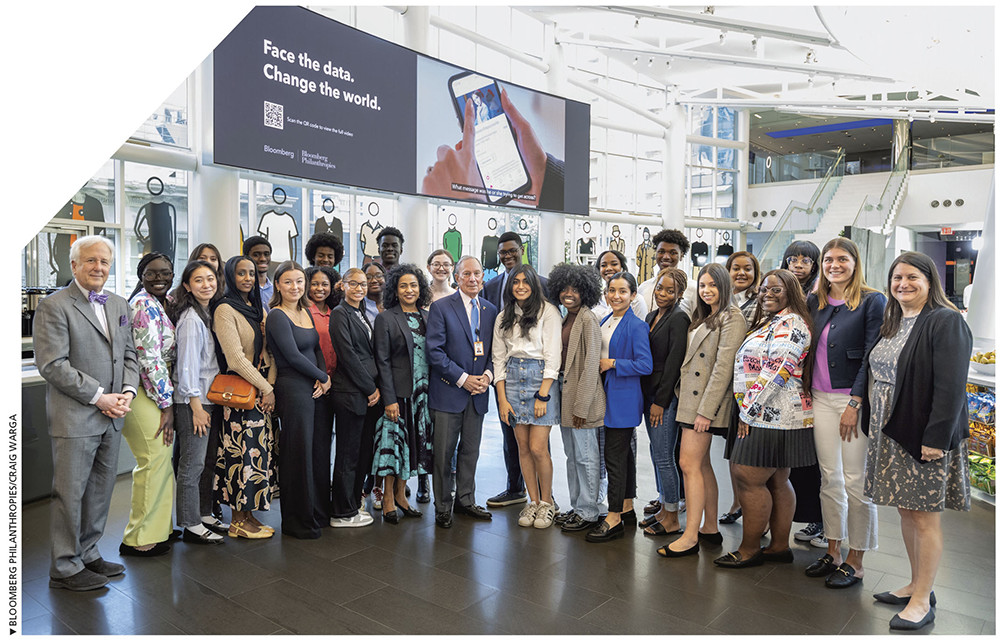
Q: How do you ensure that diversity and inclusion are integrated into the everyday practices of the newsroom at Bloomberg in New York City?
A: Bloomberg News is a global organisation with nearly 3,000 journalists sitting in over 150 locations around the world.
The 20,000 people who work for the company in data, financial solutions, enterprise sales and other departments are all part of these efforts embedded into performance metrics and culture.
Fairness, integrity and inclusion are part of doing the right thing. There’s been a lot of investment in HR and DEI efforts tracked all the way through to business performance.
For recruiting, one of the most visible programmes that helps me inspire young women to consider a career in finance or business journalism is Bloomberg’s New Voices initiative.
Since 2018, this effort has provided media training for over 600 female financial or business professionals, who have gone on to make appearances both on Bloomberg’s own television channel and other media outlets.
This data is tracked every month and the number of women who show up on TV has tripled.
MUST-HAVES AT ALL TIMES
Sunglasses
Lip balm
Wallet
Keys
Phone
Q: And how do you foster an environment that encourages innovation and creativity among team members?
A: An intern of mine was the key person who came up with a way in which to track COVID-19 vaccinations during the pandemic. Another has a documentary that’s on Bloomberg’s YouTube channel.
If the pitch is well researched and supported with a great news ‘hook’ for the reader, I’m always willing to back it; but I’ll probably say ‘let’s do a pilot’ and if it is successful, I will implement it. I’m always conscious of budgets so I won’t overcommit!
Q: You’ve won numerous accolades – including the Asian American Business Development Center’s (AABDC) 50 Outstanding Asian Americans in Business award. How do they influence your approach to leadership and work in general?
A: I think a great deal about an individual’s impact. The Asian American Business Development Center in the US was established by John Wang, who told me he felt that he was attending lots of awards events in New York City but never saw people from Asian backgrounds getting the recognition they deserved.
He decided to change that by creating this organisation and the award scheme, which is now in its 23rd year. The gala event held at the Cipriani Wall Street is attended by over 650 professionals, many from Asian backgrounds and heritage.
I emceed the 2023 event where the CEO of FedEx Raj Subramaniam was honoured, and we had a great chat about our shared cultural connections, the constant pressure to perform and the value of mentoring talent.
I reiterate to everyone I mentor that you have to be excellent and put in the work because if you don’t (for yourself), then who will?
FAVOURITES
DESTINATIONS (SRI LANKA)
Unawatuna
Trincomalee
Anywhere with a calm blue sea
DESTINATIONS (GLOBAL)
Galápagos Islands
Vienna
The Caribbean – especially Saint Lucia, which feels like a part of Sri Lanka
CUISINE
Hoppers
Middle Eastern
Lebanese
Mediterranean
The major Cs – cheese and chocolate!
BOOKS
Asterix
All of Jane Austen’s books
Salt Sugar Fat – by Michael Moss
MUSIC
The Police
King’s College’s Cambridge carol service
Aretha Franklin
I reiterate to everyone I mentor that you have to be excellent and put in the work because if you don’t (for yourself), then who will?
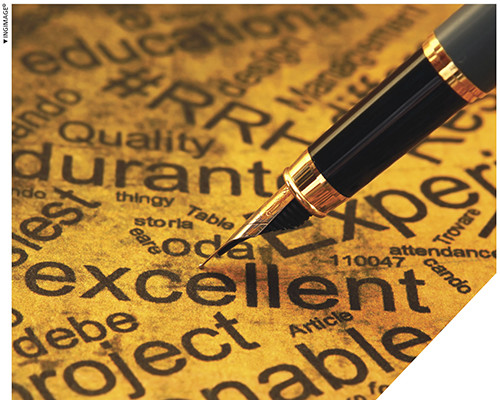
Q: What do you see as the emerging challenges in the field of journalism – and how should we in the media plan to address them?
A: I know everyone is going to say this but with AI continuing to evolve, it’s essential to balance automation with human insight, nuance and even greater news judgement.
With AI taking over some of the more banal tasks, it’s tempting to get lazy and let the machine take over. The point though is to let the machine take the boring work and for the journalist to get on the phone and figure out the ‘why?’ behind a story.
Q: Are there any specific diversity and inclusion initiatives in the Sri Lankan media that you find particularly effective or inspiring?
A: I’m afraid I’ve not seen much representation in the media. Since my mother’s illness, I spend up to two weeks at a time in Colombo several times a year and scan the newspapers every day. The front pages very rarely have a photograph of a woman and if one does, it’s often a negative or scandalous story.
While typesetting a physical paper is challenging, the mishmash of news on the front page makes no sense to me. Screaming headlines are sometimes about stories that really don’t matter or an accident in a small village sits on the front page next to a leading policy issue.
And while the regional adaptation of English as an evolving language is fine, the lack of clarity in the stories is worrying. The stories are often convoluted or feel as if they’ve been put through Google Translate. If the headline and first few lines aren’t clear, you’ve lost the reader!
I’ve admired the resilience of Sri Lankan businesses. There’s a strong entrepreneurial spirit and can-do attitude among many business leaders

Q: From afar, how do you perceive the economic environment in Sri Lanka?
A: I’ve admired the resilience of Sri Lankan businesses. There’s a strong entrepreneurial spirit and can-do attitude among many business leaders but systemic issues like corruption need addressing while a greater sense of responsibility is required among the workforce.
Many seem comfortable with delivering the bare minimum.
I worry that not enough problem solving and a lack of drive to outperform will hold us back from development.
Q: And how would you describe your connection with Sri Lanka?
A: I’ve never changed my citizenship, which surprises many people; but I’ve always ‘felt’ Sri Lankan. Despite living abroad, my identity is deeply tied to this extraordinary country.
Sometimes during meetings, I take notes in Sinhala, which is helpful for practising the language while confounding anyone trying to spy on me!
Visible diversity is essential when inspiring talent – ‘you cannot be what you cannot see.’
Even as a non-American, I’d like to not be as blindsided as many of us were in 2016 by both Brexit and the presidential election result here in America
I reiterate to everyone I mentor that you have to be excellent and put in the work because if you don’t (for yourself), then who will?
I’ve admired the resilience of Sri Lankan businesses. There’s a strong entrepreneurial spirit and can-do attitude among many business leaders
SRI LANKA IN A NUTSHELL
STRENGTHS
Super-smart entrepreneurs and business leaders
Untapped potential
WEAKNESSES
Corruption at scale
Caring about ‘me’ rather than ‘we’
Believing that ‘okay’ is enough
OPPORTUNITIES
Education – “I followed the GCE O-Level and A-Level curriculum, and not much has changed since I sat for these exams. That’s a disservice to students and the country’s future. We need to consider pivoting to a problem solving growth mindset versus learning by rote and reciting the birth dates of all the kings of Sri Lanka”
THREATS
The Global South is growing apace – “I worry we’ll be left behind by countries that are adapting faster by improving education or instilling a more willing to work culture”
